Vlogging is an increasingly popular communication medium, and I think it’s a largely underutilized way for indie musicians to communicate with fans, perform live, do interviews, build their YouTube subscribers, and share information about themselves and their lives. Musicians might even find it an unexpected source of additional income.
What is vlogging, you may ask? Vlogging is a contraction of the phrase “video blogging.” Vlogging is what happens when you publish regular, serialized video episodes on YouTube and people “tune in,” or subscribe, to your YouTube channel to watch. Vloggers, some of them quite young, but many of every age, are making a living doing this. If they offer interesting content, and can build a good subscriber base, it can be a very good living for some of the superstars of vlogging. Vloggers provide the content, people subscribe to watch it, and advertisers sell ads on their YouTube channels through the partner program.
Chris Pirillo’s VloggerFair 2013 In Seattle
I just attended VloggerFair here in sunny Seattle. VloggerFair is a combination trade show and giant fan club convention conceived and organized by the fast-talking and very creative Chris Pirillo. Chris is the star of the YouTube channel LockerGnome, a “Geek Lifestyle” channel with 288,000 subscribers. In addition to his fast-paced LockerGnome tech gadget reviews, Chris and his wife, Diana, also vlog about their day to day lives in what amounts, more or less, to a reality TV show on YouTube.
This was the first VloggerFair ever held, but it was sold out. There were 1250 participants and 21 speakers from around the country and even around the world. At least one vlogger, Corey Vidal, was from Canada. Despite the fact that it was awkward to get to the venue, and Chris had to bring in food trucks because it’s in the middle of a warehouse district, Seattle’s Pier 5 turned out to be a great choice. Parents and Uber towncars were dropping off a continual stream of attendees. The coconut water people were dancing out front to the local pop music station. It was a festival atmosphere. If you want to get a sense of the event, check out reporter Monica Guzman’s great story in Geekwire (along with her own vlog).
 Vlogging Stars iJustine, Joey Graceffa and the Church Sisters
Vlogging Stars iJustine, Joey Graceffa and the Church Sisters
One of the things I noticed immediately was how young the crowd was (mostly 17 and under), and how much the event reminded me of being at a concert. The attendees would scream whenever a popular vlogger took the stage for Q&A, and line up patiently to get pictures and autographs from some of the more popular ones like iJustine (wow – this woman has 1.5 million subscribers on her “main channel” and 5 more channels, too!) Joey Graceffa (a daily vlogger with over a million subscribers -and a manager), or Shelby and Monica Church, Seattle teen twins who have a popular hair and makeup channel called Hairodynamics. The twin blogging thing seems to be a trend, with male British teen brothers JacksGap (almost 2 million subscribers) having quite a following (although, sadly, this adorable twosome were not at VloggerFair).
Vloggers cover a wide range of subjects, including video game reviews and how-tos, hair and makeup, and a lot of gadget reviews. Some are “lifestyle” vloggers, who take their subscribers with them to the grocery store, into their homes, or on their travels. Some, like Ellen or Oprah, are interviewers who feature others, not themselves. Oh, and vlog fans are not called “followers,” although they may have many followers on their other social media channels like Facebook and YouTube. Fans are called subscribers. Unlike its precursor television, these fans are opting in to receive content. They are loyal, regular, and deeply involved. They interact with vloggers via various means, from the YouTube chat and comments section to Twitter, to live (IRL – in real life) events like meetups, fairs and conventions like VloggerFair.
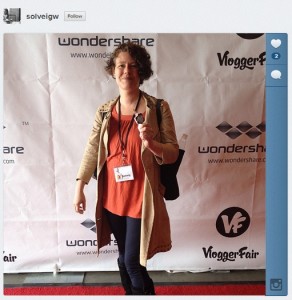 Vlogging: The Communication Medium of the Future
Vlogging: The Communication Medium of the Future
I came away from VloggerFair with the certainty that vlogging is the medium of the future. It is the future of television (particularly reality TV), it’s the future of reporting, the future of product reviews, it’s the future of education, it’s the future of teen magazines, it’s the future of blogging – and it’s definitely the future of personal branding.
Vlogs vary a lot in their production value. Some new vlogger friends, Marty and Misty McPadden, explained to me over some handroll sushi at lunch how they do their weekly Sunday night YouTube vlog called PodJamTV LIVE. They keep their channel low-production (they use Google+ Hangouts On Air) so they can vlog from wherever they are – even on the road. They interview people and they do little editing. Other vloggers have a little more production value, like Chris Pirillo or Corey Vidal’s vlogs.
Musician Vlogger Examples
As a musician, I was particularly interested in how the idea of vlogging is being used in the music community. Especially for musicians with a younger demographic, I think the vlogging concept is underutilized by indie musicians. I did find some music vloggers, like country music fan and vlogger, Jessica Northey, who runs a popular weekly Twitter chat called #CMChat and does Google+ Hangouts On Air, where she talks about country music and interviews musicians. I’ve heard of some musicians who have been vloggers in the past, like Jonny’s Journal (Canadian Band Art of Dying’s lead singer vlogged while on tour), and New York based pop artist (and former client of my partner, Stevie) Gaby Boromeo’s 14 days of vlogs. There are also musicians who are using YouTube to chronicle their travels, or document their song-writing efforts. It takes time, however, and persistence, to become a vlogger.
There are a lot of musicians on YouTube creating pop cover songs, but I really think vlogging is worth looking at as another means to bring an added dimension to a musician’s personality and relationship with fans. The secret seems to be interesting content, high energy, a sense of humor, a touch of vulnerability – and persistence.
Are you ready to dip your toes into the world of vlogging? Sure, resources like StageIt are set up for streaming live performances, but nothing beats YouTube for artist discovery. I think YouTube is the platform to use, because it is, after all, the number one music channel. But who says you should use YouTube just to post cover songs or music videos? Vlogging is a great way to expand your video content. Whether you choose to do live vlogs or pre-recorded, the key is a regular schedule and interesting content.
Here are some additional technical resources:
- Matt Schlicht of Hipset Networks covers a 6 Point Guide to Live Broadcasting on YouTube on Hypebot for those who already have 1000 or more subscribers to their YouTube channel. Live broadcasting includes a built-in live chat window, and Matt offers some great ideas on how to use that to connect with fans.
- For those with fewer than 1000 YouTube fans, you can use Google+ Hangouts and stream your broadcast live. You can also us Google+ Hangouts to schedule and invite people to your event. Michael Brandvold has a guide to setting up a Google+ Hangout On Air for musicians, as well as 12 Things to Do In Advance of a Google+ Hangout.
- 13 Bite-sized Vlogging Tips For Beginners from moolahblogger is a great practical checklist for those starting out vlogging.
My First 100 Videos Weren’t Any Good
Misty McPadden’s advice is: just try it. You can get all kinds of expensive camera equipment – but you can also start vlogging with just a smartphone. Once you get the technology down, add better lighting and adjust your background set to increase production value. Consistency is everything when developing a fan base – it takes time, and you have to keep at it. As vlogger SolderKnowsBest said in his VloggerFair interview, “My first 100 videos weren’t any good, but YouTube gave me a job. This was a hobby, but now it’s my job.”
What do you think of vlogging? Do you vlog? Do you want to vlog? Do you subscribe to vloggers yourself? Leave your comments here and please share your links to other helpful information on vlogging.

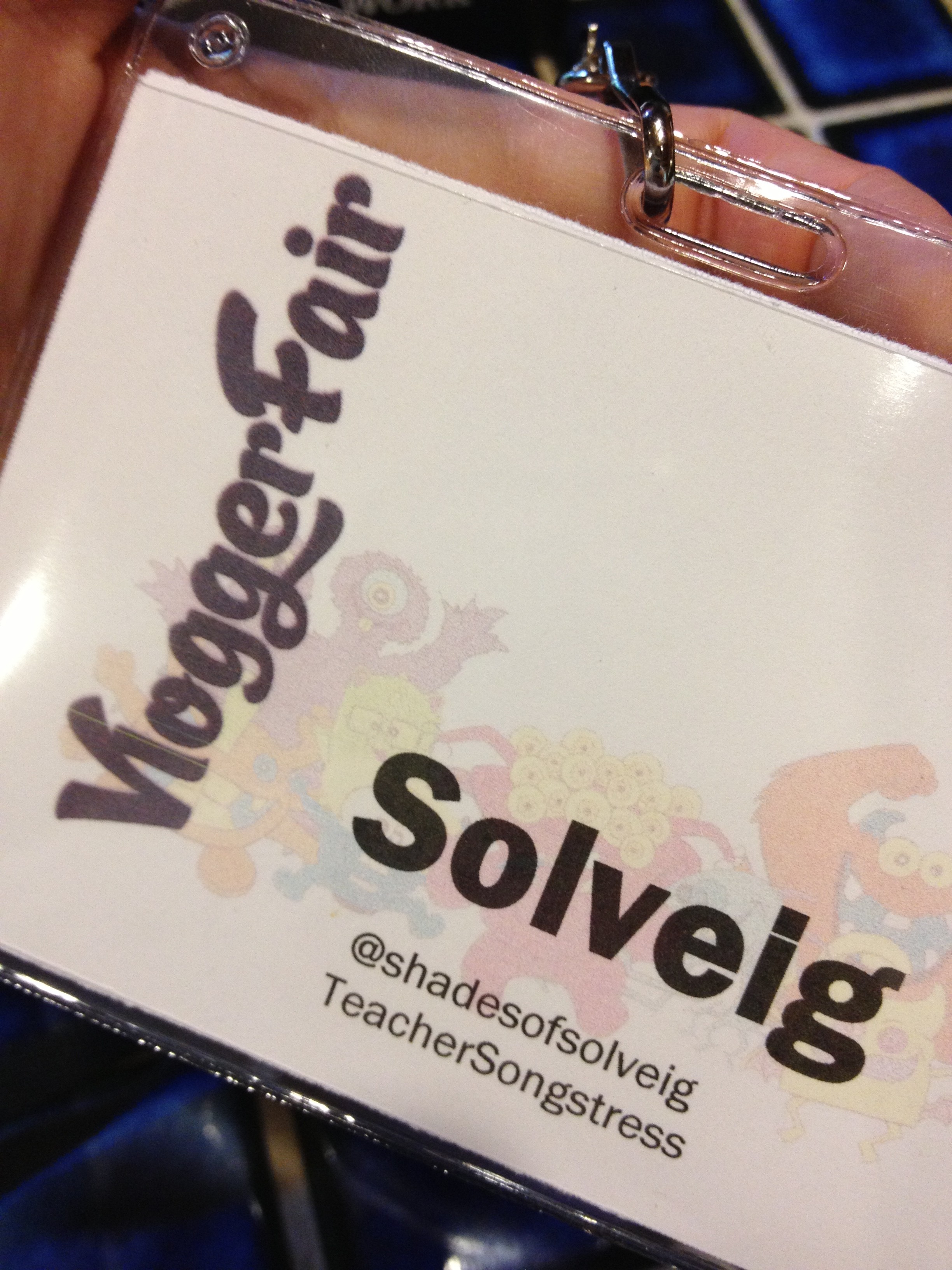
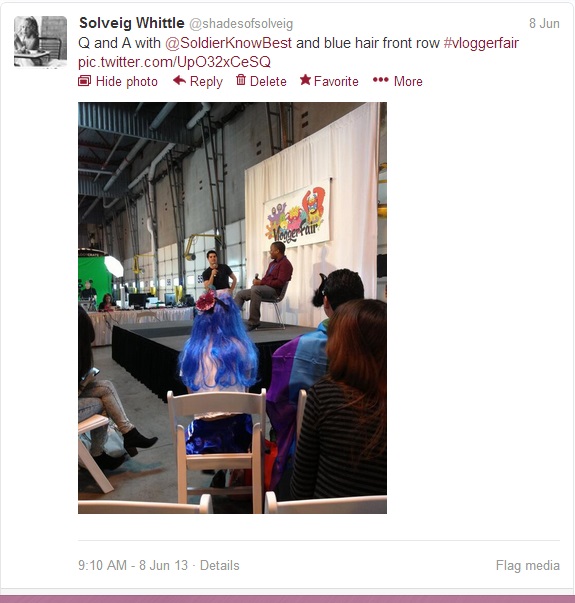
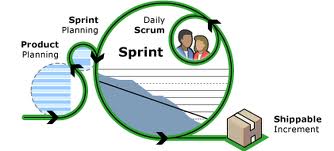
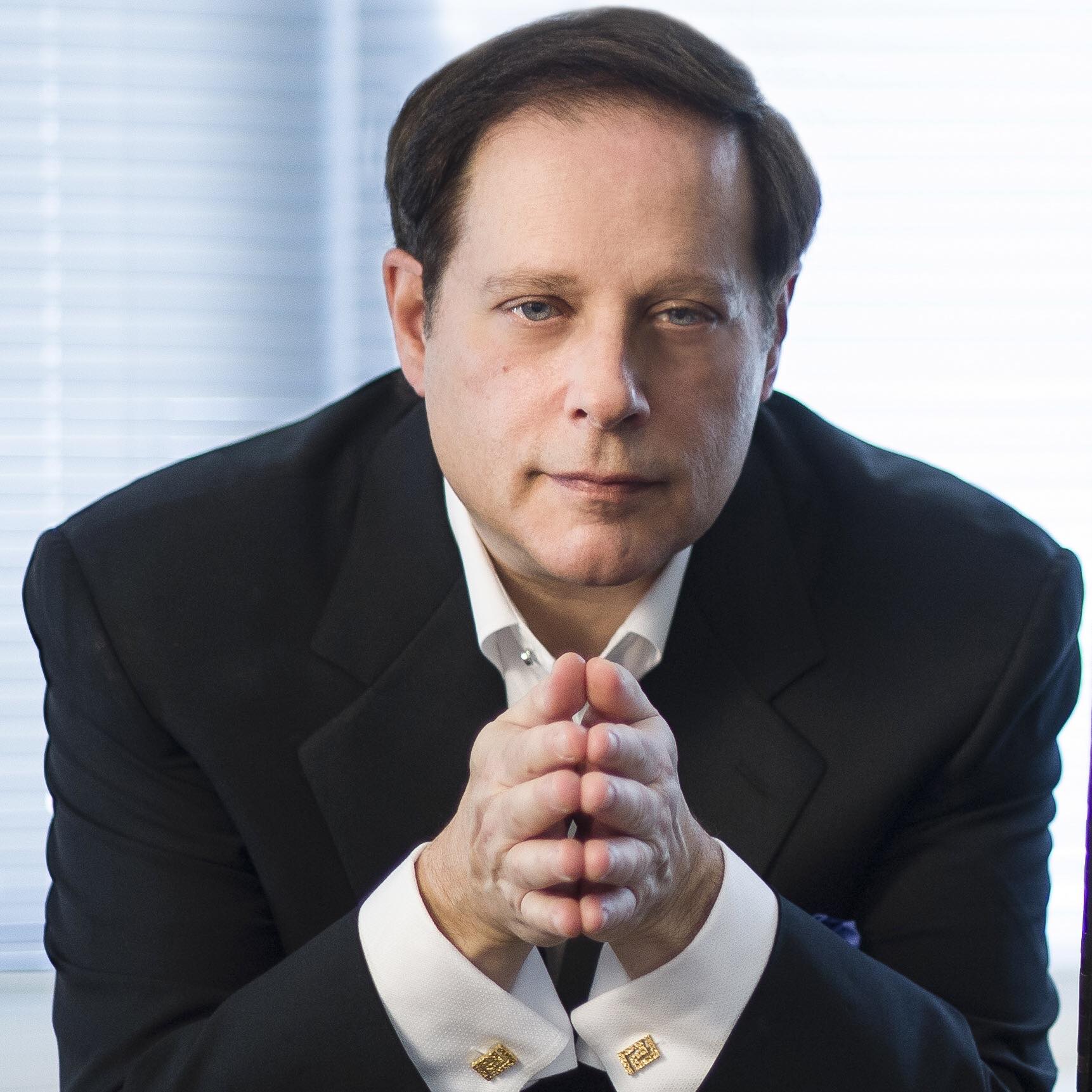

2 comments